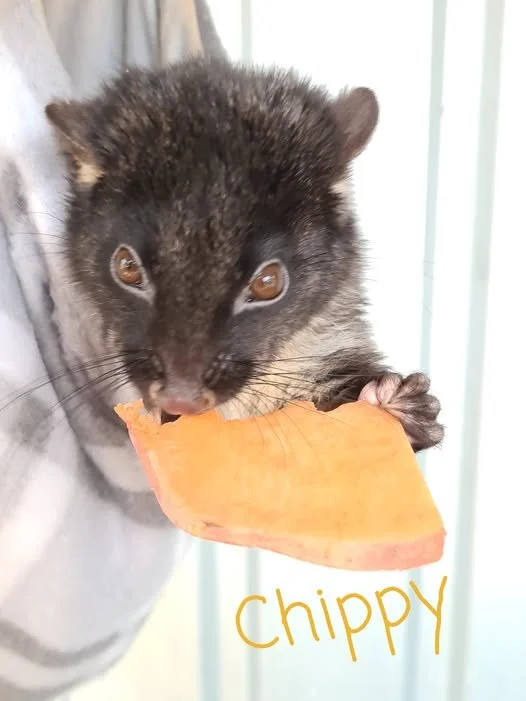Possums in Our Care: The Quiet Complexity of Orphaned Lives
They arrive small, silent, and wide-eyed—clinging to fur that’s no longer there, searching for warmth that’s been lost. Orphaned possums are among the most vulnerable wildlife in our care, yet their needs are often misunderstood or overlooked. Behind their nocturnal eyes lies a world of solitary navigation, sensitive digestion, and fierce territorial instinct.
This post explores the delicate journey of orphaned possums, the dangers of incorrect feeding, and the emotional toll of isolation—while challenging the myths that surround these quiet survivors.
Orphaned Possums: Fragile Beginnings
Possums are born tiny and undeveloped, spending months in their mother’s pouch before venturing out. When orphaned—often due to vehicle strikes, dog attacks, or habitat destruction—they require species-specific care that mimics the pouch environment and respects their solitary nature.
The Importance of Species Identification: Australia is home to several possum species—brushtails, ringtails, sugar gliders, and more—each with unique dietary and behavioral needs. Misidentifying a species can lead to inappropriate care, poor development, and failed release.
Pouch Simulation & Emotional Regulation: Young possums rely on the pouch for warmth, darkness, and rhythmic movement. In care, this must be replicated with:
Proper pouch materials (natural fibers, breathable fabrics)
Controlled temperature and humidity
Minimal handling, to reduce stress and overstimulation
Possums are not comforted by constant human contact. They require quiet, consistency, and space to develop their natural instincts.
Feeding Possums: The Hidden Harm of Human Food
Possums may nibble on fruit in the wild, but their diet is far more complex. Many are folivores, relying on specific native leaves, flowers, and insects. Feeding them bread, bananas, or processed foods can cause:
Diarrhea and gut imbalance, especially in ringtails
Obesity and fatty liver disease, from sugar-rich diets
Dental decay and bone weakness, due to calcium deficiency
Even commercial “wildlife mixes” can be inappropriate if not tailored to species and age. For orphaned possums, correct formula is critical—cow’s milk or generic pet milk can be fatal.
Emotional Needs & Solitary Nature
Unlike kangaroos or magpies, most possums are solitary. They establish and defend territories, and forced cohabitation—even with other possums—can lead to stress, injury, or death.
Signs of Emotional Distress in Care:
Pacing or self-mutilation, from overstimulation
Refusal to eat, due to fear or environmental mismatch
Aggression, often misread as “bad behavior” rather than trauma response
Possums need quiet, predictable environments and gradual exposure to natural stimuli. They are not pets, and treating them as such can compromise their survival.
Habitat Loss & Urban Conflict
Tree hollows take decades to form, yet they’re essential for possum nesting. Urban development, logging, and fire have decimated these safe spaces, forcing possums into roofs, sheds, and walls—where they’re often misunderstood and evicted.
Solutions for Coexistence:
Installing possum boxes in gardens and reserves
Planting native trees that support food and shelter
Educating communities about humane deterrents and relocation protocols
Possums are not pests—they are displaced survivors navigating a world that no longer fits them.
A Call to Compassionate Care
Caring for orphaned possums is not just about survival—it’s about restoration. It requires:
Species-specific knowledge, not assumptions
Emotional sensitivity, not overhandling
Correct nutrition, not convenience
Respect for solitude, not forced bonding
Every possum in care is a chance to rewrite the story of coexistence. Not as intruders in our homes, but as rightful inhabitants of a shared landscape.
Chippy — a life that should have been longer
This critically endangered Ringtail Possum came into care already compromised by incorrect feeding. Despite every effort, his tiny body couldn’t recover. One morning, without warning, he was gone—kidney failure claimed him silently. His death was preventable. If only he’d been placed with an experienced carer from the start. Chippy’s story is a heartbreaking reminder: good intentions aren’t enough. Expertise saves lives.

